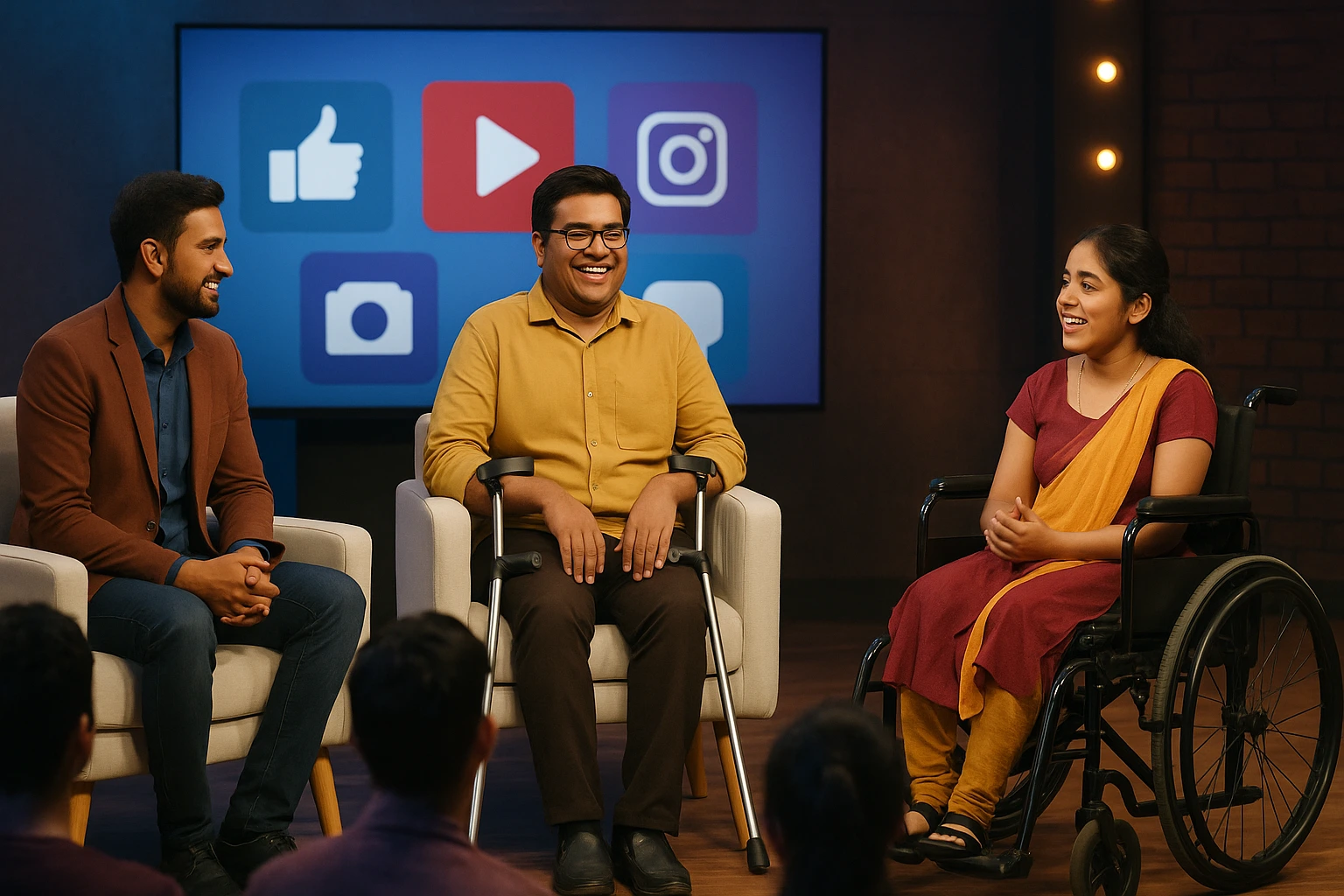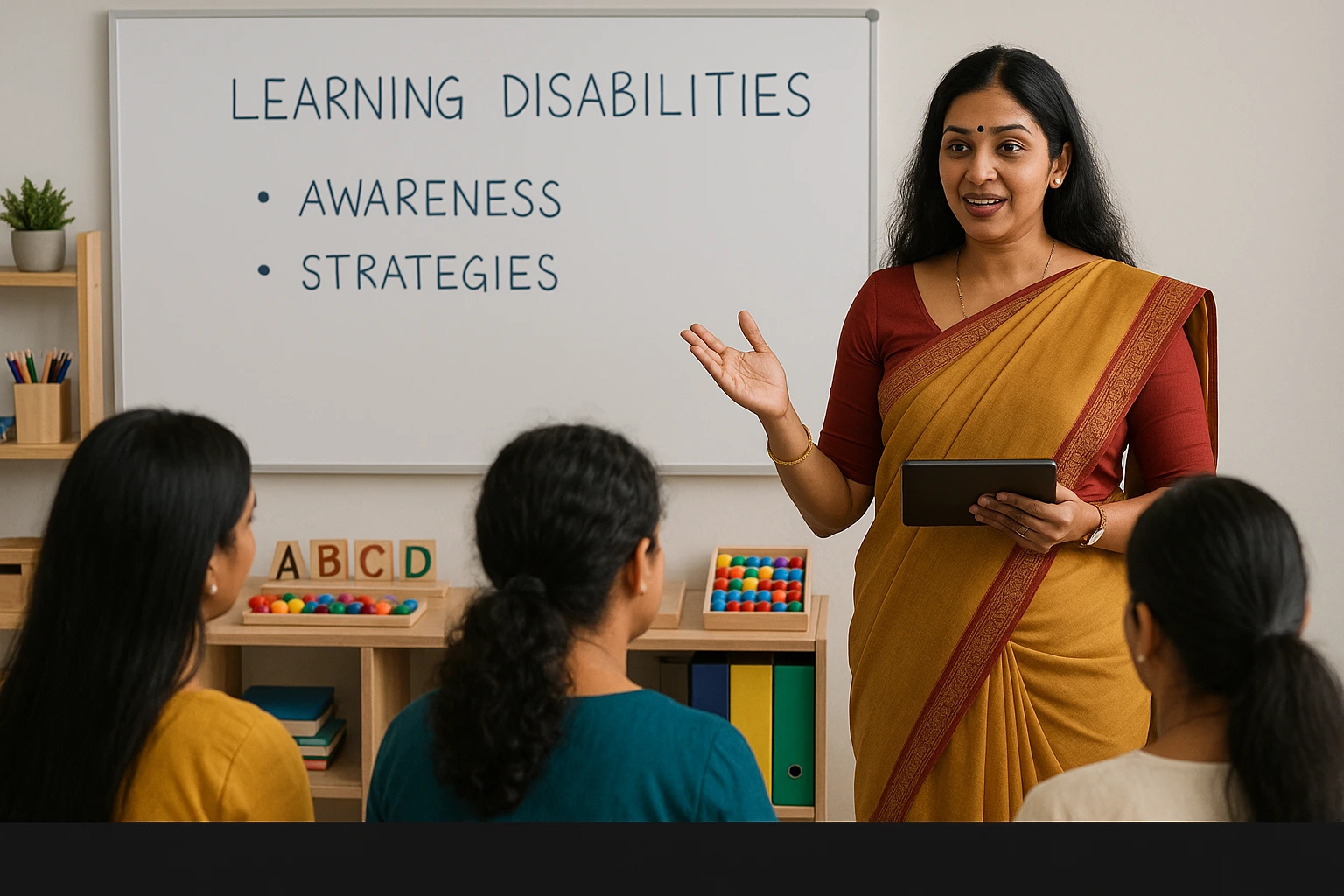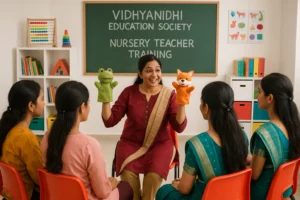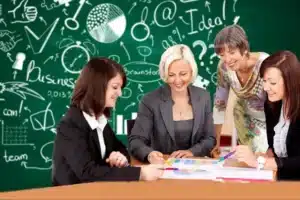
The perception of Disability has undergone a colossal change over the past few decades. Disability is no longer perceived as a means to gather sympathy and seclusion. With the acknowledgement of different Types of 21 disabilities under a broader lens, there is massive awareness about the struggles and challenges faced by children with special needs.
The list of 21 disabilities encompasses various neurological disorders, such as ADHD, Autism, to chronic conditions of cerebral palsy. This list has impelled Schools to do their best in adapting their classrooms with the latest inclusive practices and tools to make education accessible to a wider section of children.
Education, Employment, and Social Change through a Neurodiversity Lens
The neurodiversity lens has undergone a huge change that has changed the way we perceive disability and individuals who possess it. It is now an understood fact that disabilities are a result of neural dysfunction that has helped to reduce the stigma and erroneous notions about learning disorders.
Thanks to Special Education, Neurological and learning disorders such as ADHD, ADD, and Dyslexia are no longer looked at as deficits. These disorders have their unique attributes that have helped People with special needs create their pathways for achieving financial independence.
To Download the Brochure of the LD Course, Click Here!
For more Details about the LD Course, Call / WhatsApp at +919321024137 / +919869866277
Education: From Uniformity to Individual Needs
- Traditional classrooms are changing to include flexible teaching approaches that cater to diverse students.
- Individualized Education Plans (IEPs) are tailored academic plans that are made to suit the learning needs and are based on the learning preferences of the child.
- The concept of one-size-fits-all is being expunged by Special education and moving towards a responsive, student-centered learning system.
Job opportunities: Emphasis on unique skills and potential
- As research proves, special needs individuals are often gifted individuals who possess exclusive skills such as creativity, artistic expertise that can be capitalized on to establish successful businesses.
- Workplaces are easily accessible infrastructure-wise wise and spaces with special emphasis laid on being sensory-friendly are being developed and are becoming common.
- The base for skill development that results in satisfying job opportunities is created by special education.
Social Change: Acceptance and Accessibility
- Social media, television platforms have initiated special programs that are encouraging people with special needs to come up and share their stories, leading to better socio-emotional acceptance.
- Awareness campaigns and training help reduce stigma and promote acceptance across all layers of society.
- Attitudinal Shifts help to divert the mindset from sympathy to immense respect for Special Needs Individuals, leading towards the creation of an inclusive and broad-visioned society.
With special education at its essence, this developing perspective is pushing society toward fairness, functionality, and dignity for every individual regardless of how their brain works.
How Disability Awareness is Revolutionizing our World?
Disability awareness is reshaping how people think, design, teach, and lead. It’s not just about inclusion, it’s about reimagining systems to reflect real diversity. As more individuals and institutions identify the varied ways people experience the world, shifts in education, workspaces, and public life are gaining momentum.
- Schools are rethinking learning atmospheres to support every student’s unique needs.
- Workplaces are adopting flexible methods to tap into the strengths of neurodiverse employees.
- Infrastructure, from apps to architecture, is being designed with accessibility as essential.
Special education training prepares individuals with the tools to understand, support, and advocate effectively. It helps teachers, caregivers, and professionals apply inclusive methods, develop empathy-driven responses and influence policies that promote fairness. This growing awareness powered by proficient minds is turning understanding into action and reshaping our world into one where everyone has a rightful place.

Source: mybrainmytrainer
The Role of Special Education in Inclusive Progress
Special education has attained a significant place in the education system, where it has shaped the journeys for children and communities, productively enabling them to build successful lives for themselves and be a valued component of the overall ecosystem.
is more than a support system it’s a driver of inclusive progress across schools, workplaces and communities. By focusing on individual learning needs and equitable opportunities, special education challenges outdated norms and creates space for all abilities to succeed.
- It prepares teachers to identify and address diverse learning styles through personalized strategies.
- Classrooms become more flexible, where accommodations are standard practice, not exceptions.
- Students gain deep insights into each other’s inner lives, helping them understand their diversities and how each one is unique in their way, adding colors to their lives, reflecting practical diversity.
When the bias and stigma around Disabilities and disorders are taken care of, half the battle for Children with Special Needs is taken care of. By conducting training camps and awareness can be spread that changes people’s perspective of how they view disability. It widens their knowledge, making them considerate and helpful towards those who face these disorders.
Once the mindset changes, there is a shift in their attitudes towards special needs children, promoting neurotypical disorders and inclusive practices.
Special education endeavors to create a broad-minded system that will last for lifetimes, where children get a fair chance to succeed and establish a bright, flourishing future for themselves.

Leveraging Special Education to Build Inclusive Work and Learning Environments
Creating inclusive spaces starts with understanding. Special education offers the tools and visions needed to transform workplaces and classrooms into supportive atmospheres for all. The key lies in applying practical disability knowledge, understanding diverse needs, and responding with informed approaches.
The Learning Disability Course by Vidhyanidhi Education Society (Govt. Regd.) plays an important role in this change. It prepares teachers, specialists, and caregivers with practical skills to identify and respond to learning difficulties effectively.
- The Learning Disability Course trains individuals to adapt teaching methods, making education more available.
- It helps make workspaces that value neurodiversity talent through reasonable accommodations.
- The course highlights empathy-driven communication, which reduces misunderstandings and builds stronger relationships.
Inclusive systems are built through awareness and action. The Learning Disability Course addresses the practical applications of disability knowledge, turning theory into daily practice in classrooms, offices, and beyond.
Whether in a teaching or leadership role, persons trained in the Learning Disability Course can actively design policies and practices that benefit all students and workers. Integrating these insights brings institutions closer to achieving equity, respect, and full involvement for people of all abilities.
Be the change—join the LD Course at Vidhyanidhi Education Society (Govt. Regd.) today!
To Download the Brochure of the LD Course, Click Here!
For more Details about the LD Course, Call / WhatsApp at +919321024137 / +919869866277
21 Disabilities
FAQs
How is disability awareness changing societal attitudes?
Disability Awareness is reducing the stigma and bias around Special Needs Individuals and helping the acceptance of neurodiversity.
How does accessibility go beyond physical spaces?
By incorporating inclusive practices in educational practices, using tools that facilitate easy learning helps to foster accessibility beyond physical places.
What can communities do to support people with disabilities?
Ensure inclusive services, accessible infrastructure, and social inclusion.



